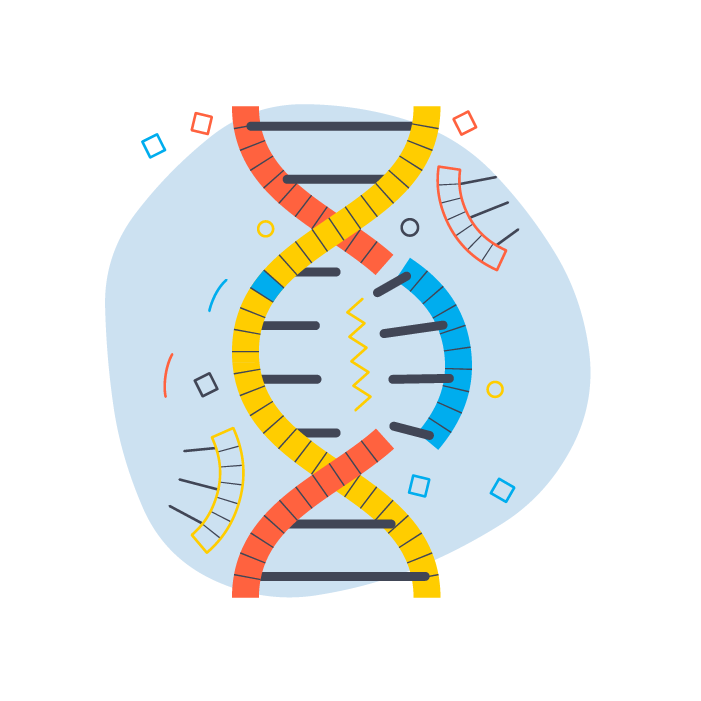Last Updated : March 6, 2023

Whole genome (the entire DNA code of an individual), exome (the DNA code of all protein coding regions), and transcriptome (global gene expression as measured by RNA) sequencing are precision medicine technologies that are referred to as “omics-based” technologies because they characterize the complete or comprehensive set of molecular information of individuals’ cells and tissues. The comprehensive nature of omics-based sequencing technologies allows for a single test to be performed at the onset of clinical presentation rather than a series of individual tests, helping to improve diagnostic information and possibly increase speed of diagnosis.
Whole genome and exome sequencing offer an important value proposition for rare diseases, pediatric conditions, and adult conditions that affect different organ systems. For example, these technologies may reduce diagnostic delays for treating critically ill infants with unknown conditions, which could lead to better outcomes in acute care settings. Profiling tumours with these technologies can also help inform diagnoses and identify actionable mutations (i.e., genetic variants that can be targeted by therapy) for people with rare or unknown cancers.
Although whole genome, exome, and transcriptome sequencing have been used extensively in research settings, in the next 5 years these technologies may see substantially more implementation into routine care due to their potential for providing a more precise and wider span of information compared to targeted- or single-gene tests. Their adoption across the continuum of care, from diagnosis to classification to treatment, could change health care in Canada.
Examples of emerging technologies and initiatives to watch related to omics-based sequencing include:
- Ultrarapid nanopore genome sequencing technology aims to speed up whole genome sequencing processes to deliver results in fewer than 8 hours. Preliminary study findings suggest the technology could be useful in critical care settings, such as neonatal intensive care units, where rapid sequencing could provide more timely results, reducing the need for a cascade of other diagnostic procedures.
- The Marathon of Hope Cancer Centres Network has created interprovincial networks and is conducting pilot projects across Canada to expand the availability of whole genome and transcriptome sequencing and its necessary infrastructure to support the implementation of precision medicine technologies in routine care.
Last Updated : March 6, 2023


